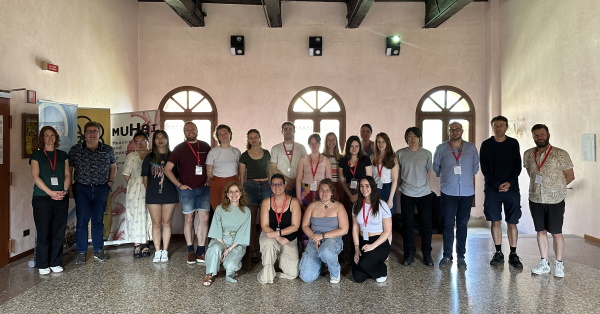As cities evolve and global issues intersect with local realities, two recent summer schools have provided crucial insights into understanding and addressing these complexities. The "Linguistic Landscapes: Using Signs and Symbols to Translate Cities" summer school, held in late June 2024, delved into how urban signs and symbols reflect and shape cultural narratives and social dynamics within urban environments. Complementing this exploration, the "Global Mental Health and Human Rights" summer school, conducted in late July 2024, tackled the impact of environmental, gender, and economic racism on mental health and human rights. Both programs highlighted the importance of interdisciplinary approaches—whether through the lens of urban semiotics or global human rights—to deepen our understanding of how societal issues are interwoven with daily life and to foster meaningful, transformative change.
Unveiling Urban Narratives | Linguistic Landscapes: Using Signs and Symbols to Translate Cities
The "Linguistic Landscapes: Using Signs and Symbols to Translate Cities" summer school, held from June 24 to June 28, 2024, explored the burgeoning interdisciplinary field of Linguistic Landscapes (LL). The summer school provided a unique and in-depth exploration of how urban signs and symbols contribute to our understanding of cities. By combining theoretical knowledge with practical application, participants gained valuable insights into the complex interplay of language, symbols, and urban environments. This course not only advanced their academic pursuits but also heightened their awareness of the social and cultural narratives embedded within the urban landscape
Participants engaged in a comprehensive curriculum that covered multiple facets of modern LL research. The course began with an analysis of traditional verbal signs such as road signs, billboards, street names, and public signs. It then expanded to the realm of semiotics, encompassing a diverse array of non-verbal signs, including images, sounds, graffiti, tattoos, and more. Students received detailed instruction on the various types of signs, their formal features, and their functions within the urban landscape.
The course equipped students with essential skills and knowledge. Participants became familiar with the standard tools and concepts required for collecting, annotating, and analyzing data in LL research. They gained an understanding of the latest scholarship in the field, and learned to conduct and present LL research in situ, specifically in Venice. The course also heightened their awareness of social, economic, and political issues such as diversity, racism, discrimination, inclusion and exclusion, activism, global-local controversies, ideologies, justice, sexual identity, and gender equality. Through exploring how LL research impacts the cultural profile of cities and influences interactions with the urban environment, students were enabled to apply interdisciplinary LL approaches to their research.
The course welcomed 16 participants from various academic backgrounds, ranging from third-year bachelor students to PhD candidates.

Rethinking Global Mental Health and Human Rights: A Summer School on Environmental, Gender, and Economic Racism
The "Global Mental Health and Human Rights" summer school, held from July 22 to 26, 2024, explored the intersections of mental health with environmental, gender, and economic racism.
The program featured a comprehensive program designed to provoke critical reflection on methodologies with a focus on power, privilege, and human rights within a global context. Lectures by distinguished speakers were complemented by small group discussions and plenary sessions, fostering a dynamic learning environment.
Topics included in the program addressed gender inequalities and access to health, with an introduction to feminist perspectives in research, while the importance of racial equality in human rights was highlighted, alongside discussions on decolonization and pluralization practices. In addition the program addressed transformative processes and enabling conditions, and the impact of political violence on subjectivity and culpability, and also explored psychosocial responses to modern challenges such as forced displacement, mass migrations, and gross human rights violations, focusing on how survivor-protagonists seek truth, redress, and healing justice.
The program attracted a diverse group of individuals committed to advancing the field of global mental health and human rights. The diversity of backgrounds and perspectives enriched the discussions and contributed to a more comprehensive exploration of the topics covered.
By combining theoretical insights with practical discussions, the program enabled participants to challenge conventional ideas and contribute to the decolonization of mental health practices. This initiative highlights the importance of addressing environmental, gender, and economic racism in the pursuit of global mental health and human rights.
This summer school benefited from Erasmus+ funding (2022-1-IT02-KA171-HED-000071925)






















